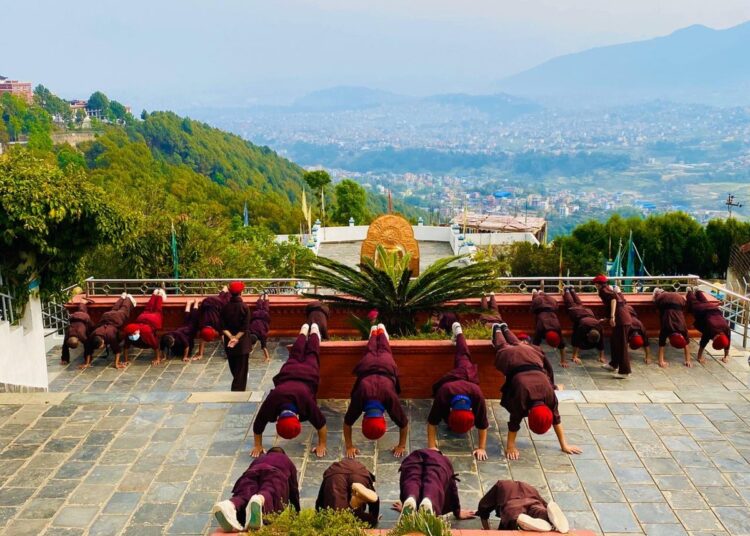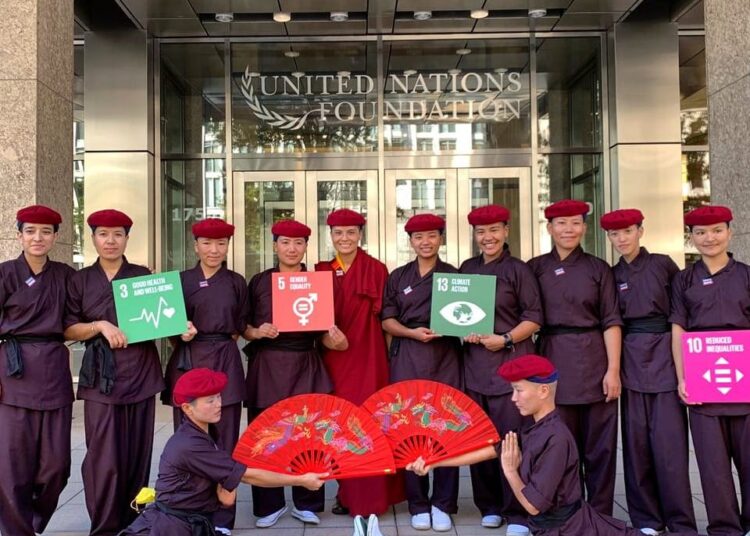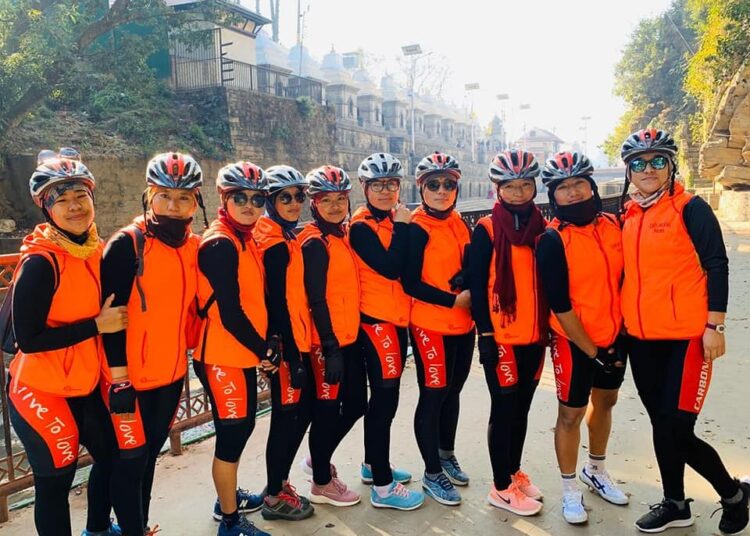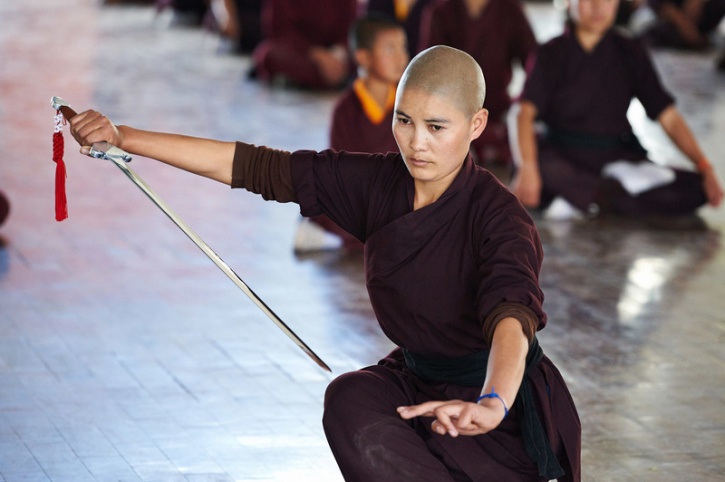The Amitabha Monastery sits on the top of Druk Amitabha mountain overlooking Kathmandu Valley. It is a center for spiritual practice and for humanitarian causes. It has a hall that seats up to 2,000 people, a library, administration office for the Drukpa Lineage, a nunnery, residences for 300 nuns, and a medical clinic. It is a refuge for animals saved from butchering and has vegetable gardens to provide food for the center. The nuns believe that their order is “a thousand year old Buddhist tradition that began in the Himalayas when the founder, the Gyalwang Drukpa, witnessed the miraculous flight of nine dragons into the sky.”

But what is most intriguing about this monastery and its inhabitants is the nun’s other pursuit besides praying. This nunnery is the only one in Nepal where the nuns practice martial arts. The nuns of the Buddhist Drukpa Order train three hours a day, and they break bricks with their bare hands. They are seen as heroes in the Himalayas; these strong women delivered supplies to hard-to-reach villages after an earthquake struck Kathmandu in 2015. The kung fu nuns have also taught self-defense classes for women and biked 14,000 miles to protest the human trafficking of women and girls. They are truly a force of nature.
Though their order is 800 years old, their mission could not be more up-to-the-minute and encompasses “gender equality, physical fitness, environmentally-friendly ways of living, and respect for all living beings.”
These values are not inherent in Buddhism. As far back as scholars can remember, women in the Himalayas who sought to practice as spiritual equals with male monks were stigmatized, both by religious leaders and broader social customs.

Barred from engaging in the intense philosophical debates encouraged among monks, women were confined to chores like cooking and cleaning inside monasteries and temples. They were forbidden from activities involving physical exertion or from leading prayers or even from singing. The Kung Fu nuns defy all these traditions.
In recent decades, those restrictions have become the heart of a raging battle waged by thousands of nuns across many sects of Himalayan Buddhism.
The Kung Fu nuns are in the vanguard of the movement. Their Drukpa sect began a reformist movement 30 years ago under the leadership of Jigme Pema Wangchen, who is also known as the 12th Gyalwang Drukpa. He was willing to disrupt centuries of tradition and wanted nuns who would carry the sect’s religious message outside monastery walls.
“We are changing the rules of the game,” said Konchok Lhamo, a Kung Fu nun. “It is not enough to meditate on a cushion inside a monastery.”

Far from limiting their activities to meditation and prayer, they are deeply committed to a diversified program of environmental and humanitarian activism. “Each year, we do an ‘Eco-Pad Yatras’ (usually 400+ miles long) on foot to pick up plastic litter, and educate locals on environmentally-friendly ways of living. Recently, we began doing Bicycle Yatras across all of India and Nepal to promote world peace and green transportation. These events take several months at a time to complete, often through rain, snow, wind, avalanches…”
In 2015, when Nepal was struck by a terrible 7.9 earthquake, the kung fu nuns were there to help. With the support from an international non-profit called Live to Love, they were among the first relief workers on the ground to distribute aid. Initially they could only reach the villages in need on foot. Later, they were able to perform a medical helicopter rescue, truck rescues, food and medicine distribution, provide solar power, and more. This year they helped build 201 homes for the victims of the earthquake.

All this is very impressive, for sure, but what many find most fascinating is their expertise with swords, numchucks, machetes and a host of every other kind of weapon.
They began learning Kung Fu for self-defense and for building their inner and outer strength, and in their view, this has helped them “with meditational focus, staying strong, and working hard for others.”
“Kung Fu helps us to break gender barriers and develop inner confidence,” said Ms. Lhamo. Judging from the attention and admiration they are garnering from around the world, their efforts seem to be paying off big time.











